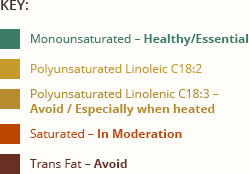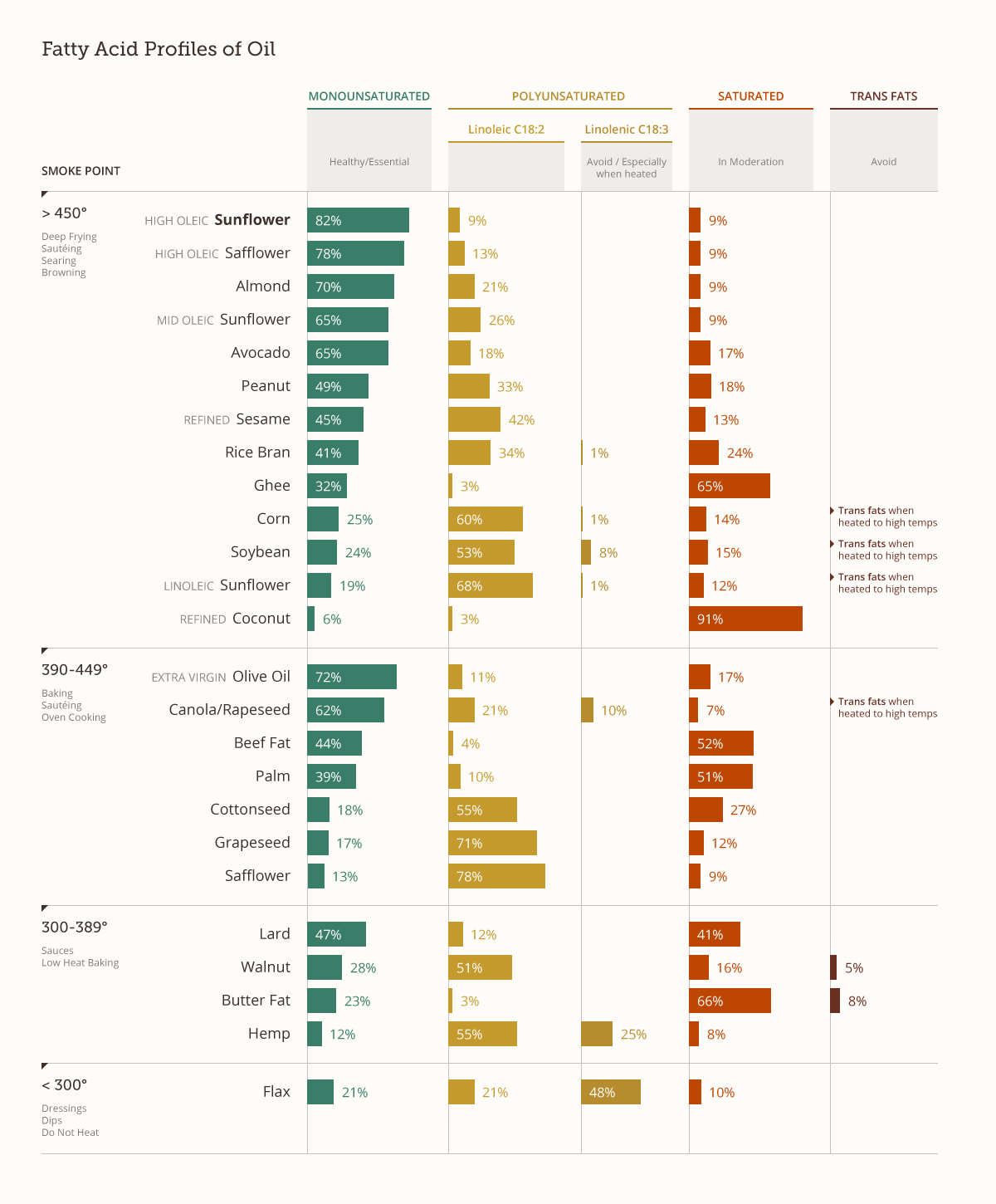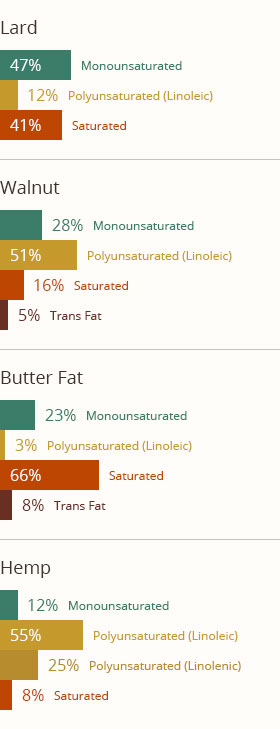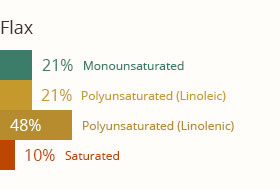Oil Information

CM Sunflower Oil is naturally extracted from high oleic sunflower seeds grown in Southeastern Colorado. This is a Colorado product from processing to labeling.
This oil is perfect for sautéing, frying, baking, and making your favorite salad or dipping oil.
The all-natural extraction process uses NO solvents in removing the oil from the seeds, instead using a pressing process. We do not winterize our oil after refining, which is why you will notice a small amount of sunflower wax in the bottom of the bottle. This leaves the oil in its more natural state and does not affect the cooking quality of the oil.
The Good, the Bad, and the Oils
Bad Types of Sunflower Oil
There is a lot of information on the web that claims sunflower oil should be avoided and is bad for you. What these articles don’t tell you is that there are several types of sunflower oil. There are three types of sunflower oil; high oleic, mid oleic and linoleic sunflower oil. The most common sunflower oil on the grocery store shelf today is linoleic sunflower oil. This is the oil that should be avoided as it is very heavy in polyunsaturated fat. Most of this type of oil comes from Europe where there is a very small crop of high oleic grown.
Other Cooking Oils
TBHQ – tert-Butylhydroquinone: An additive to enhance stability during use and shelf life. It has been shown to damage DNA and have ill effects to the digestive system of lab animals. Found in biodiesel as a corrosion inhibitor, in perfumes – to lower evaporation rate, varnishes, lacquers and resins. TBHQ is a derivative of butane.
PDMS – Polydimethylsiloxane: An additive to prevent oil from foaming while under extreme heat. PDMS is a silicone that is used in the making of plastics, shampoo, caulking, lubricants and heat resistant tiles.
Free Fatty Acids
There are 3 types of common fat in a diet. Monounsaturated (oleic) fats are essential in a balanced diet while large amounts of polyunsaturated (non-oleic) and saturated fats should be avoided. Linolenic polyunsaturated fats can become unstable when heated over a period of time, producing trans-fats.
Fatty Acid Profiles of Oil

> 450° Smoke Point
Deep frying, Sautéing, Searing, Browning
390-449° Smoke Point
Baking, Sautéing, Oven Cooking
300-389° Smoke Point
Sauces, Low Heat Baking
< 300° Smoke Point
Dressings, Dips, Do Not Heat
Did you know?
High Oleic Sunflowers are directly related to the wild sunflower.










